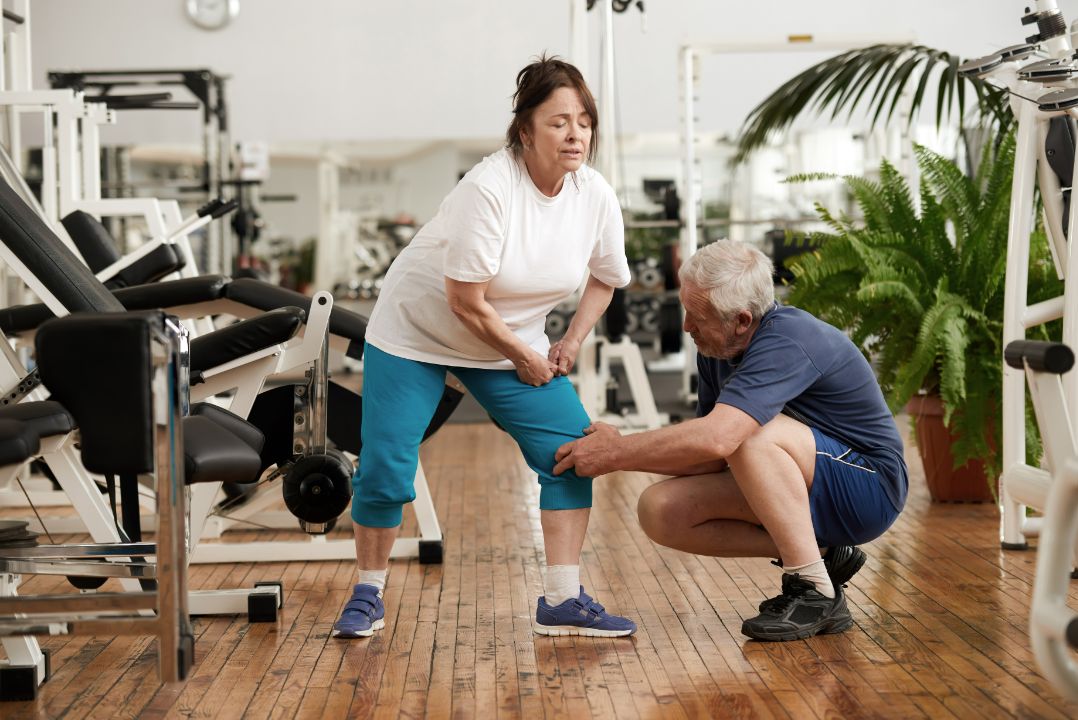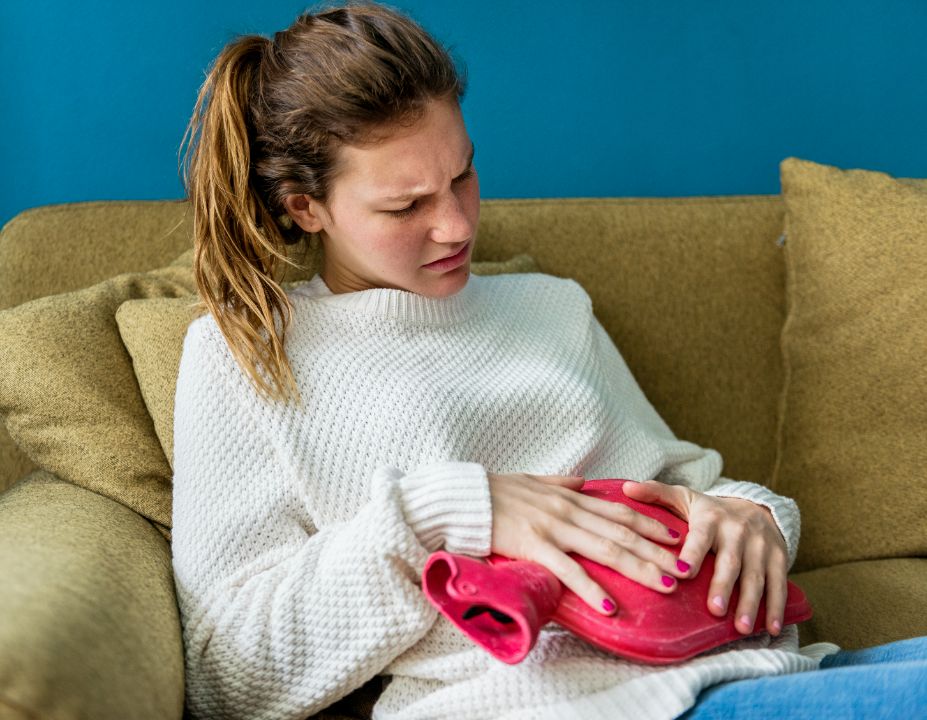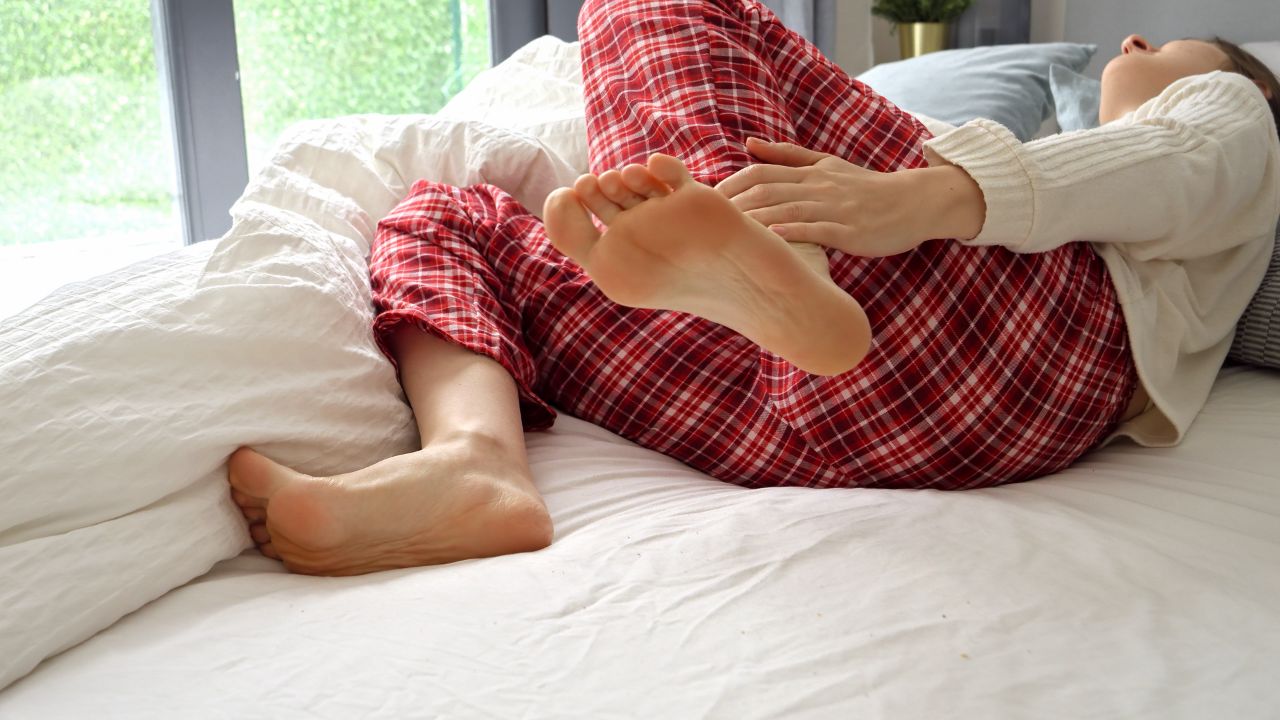Cramps are a common and often uncomfortable experience for many people. The sensation can be debilitating whether they occur during exercise, menstrual cycles, or just randomly. Fortunately, natural remedies and expert tips for relieving cramps can help alleviate the discomfort and improve overall quality of life.
Cramps are a common ailment that affects people of all ages and genders. There are different types of cramps, each with its causes and symptoms. Understanding these variations is essential in identifying the appropriate treatment to alleviate the discomfort.
Menstrual cramps, also known as period cramps, affect women during their menstrual cycle. The pain is usually felt in the lower abdomen or back and can range from mild to severe. Hormonal changes, such as a surge in prostaglandin production, cause menstrual cramps.
Leg cramps occur when the muscles in the legs contract and tighten involuntarily. The pain can be brief or persistent and is often felt in the calf muscles but may also affect the thighs or feet. Dehydration, overuse of muscles, and electrolyte imbalances may cause leg cramps.
Various factors, including indigestion, menstrual cramps, food poisoning, or inflammation in the organs of the digestive system, can cause stomach cramps. The pain can be localised in the stomach or spread throughout the abdomen and may be accompanied by other symptoms such as bloating, nausea, or vomiting.

Photo Credit: stockfilmstudio, Envato
Muscle cramps refer to sudden and involuntary contractions in the muscles. They can affect any muscle in the body but are most commonly experienced in the legs, feet, or arms. Dehydration, electrolyte imbalances, overuse of muscles, or poor circulation can cause muscle cramps.
Understanding the different types of cramps and their causes makes it easier to identify effective treatment options to alleviate the pain and discomfort.
Various factors, including dehydration, nutrient deficiencies, hormonal imbalances, and overexertion, can cause cramps. Here are some common causes of cramps:
If you experience cramps frequently, it’s important to identify the root cause in order to prevent and manage them effectively.

Photo Credit: davidpereiras, Envato
If you’re looking for natural ways to alleviate cramps, there are several remedies you can try. Here are some expert tips:
Dehydration can exacerbate cramps, so drinking plenty of fluids, especially water is important. Sipping on coconut water or sports drinks can also help replace lost electrolytes.
Gentle stretching exercises can help ease muscle tension and cramping. Focus on stretching the affected area and hold each stretch for at least 30 seconds.
Magnesium is a mineral that can help relax muscles and alleviate cramps. Try adding magnesium-rich foods to your diet, such as leafy greens, nuts, seeds, and whole grains.
Applying a heat or cold pack to the affected area can help alleviate cramps. For muscle cramps, try a warm compress or heating pad. A cold compress or ice pack may be more effective for menstrual cramps.
These natural remedies can be effective in providing relief for cramps. However, if your symptoms persist or worsen, it’s important to consult with a healthcare professional to rule out any underlying medical conditions.
While natural remedies and medical treatments are available for managing cramps, prevention is always better than cure. Here are some lifestyle changes you can make to reduce your risk of experiencing cramps:
These lifestyle changes can help reduce your risk of experiencing cramps and improve your overall quality of life.
While cramps are common and can be managed with natural remedies, some cases may require medical attention. If you experience any of the following symptoms, it’s important to seek medical advice:
Suppose you have a history of medical conditions such as endometriosis, fibroids, or digestive disorders. In that case, it’s also essential to consult with a healthcare professional to rule out any underlying issues that may be causing cramps.

Photo Credit: Rawpixel, Envato
While natural remedies can be effective for relieving cramps, some individuals may require additional treatment options for more severe or persistent symptoms. Here are some other treatment options to consider:
Over-the-counter pain relievers such as ibuprofen or acetaminophen can help alleviate cramp pain. It’s important to follow the recommended dosage and speak with a healthcare professional before taking any medication, particularly if you have pre-existing health conditions or take other medications.
For individuals with chronic or severe cramps, prescription medications such as muscle relaxants or hormone therapy may be recommended. To understand potential risks and benefits, it’s essential to consult with a healthcare professional before starting any prescription medication.
Alternative therapies such as acupuncture or chiropractic care may also relieve cramps. However, seeking out licensed practitioners and speaking with a healthcare professional before starting any alternative therapy is essential.
It’s important to note that while these treatment options may be helpful, they should be used in conjunction with lifestyle changes and natural remedies for optimal cramp relief. It’s always best to consult with a healthcare professional before starting any new treatment regimen.
In conclusion, cramps can be a painful and frustrating experience. However, many natural remedies and expert tips are available to ease cramps and improve overall quality of life. By understanding the different types of cramps and their common causes, you can take proactive measures to prevent them from occurring.
Staying hydrated, practising stretching exercises, and incorporating magnesium-rich foods into your diet are all effective ways to relieve cramps naturally. Additionally, making lifestyle changes like exercising regularly, managing stress, and getting enough rest can help prevent cramps from happening in the first place.
If you are experiencing severe or persistent cramps, it may be necessary to seek medical attention. Warning signs like fever, vomiting, or unusual discharge should be taken seriously and evaluated by a healthcare professional.
Treatment options like over-the-counter pain relievers, prescription medications, and alternative therapies such as acupuncture or chiropractic care may also help manage cramps.

Photo Credit: kryzhov, Envato
Finding effective cramp relief is essential for improving your quality of life. Don’t hesitate to try this article’s natural remedies and tips, and consult a healthcare professional if necessary. By taking a proactive approach to managing cramps, you can enjoy a healthier and happier life.
The different types of cramps include menstrual cramps, leg cramps, stomach cramps, and muscle cramps.
Dehydration, nutrient deficiencies, hormonal imbalances, and overexertion can cause cramps.
Natural remedies for cramp relief include staying hydrated, practising stretching exercises, incorporating magnesium-rich foods into the diet, and using heat or cold therapy for muscle cramps.
Lifestyle changes that can prevent cramps include regular exercise, maintaining a balanced diet, managing stress levels, and getting enough rest.
It is important to seek medical attention for severe cramps if you experience persistent or worsening symptoms or if you notice any warning signs that may indicate an underlying medical condition.
Additional cramp treatment options include over-the-counter pain relievers, prescription medications, and alternative therapies such as acupuncture or chiropractic care.